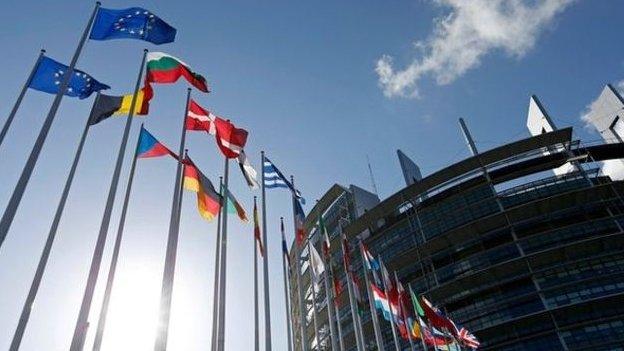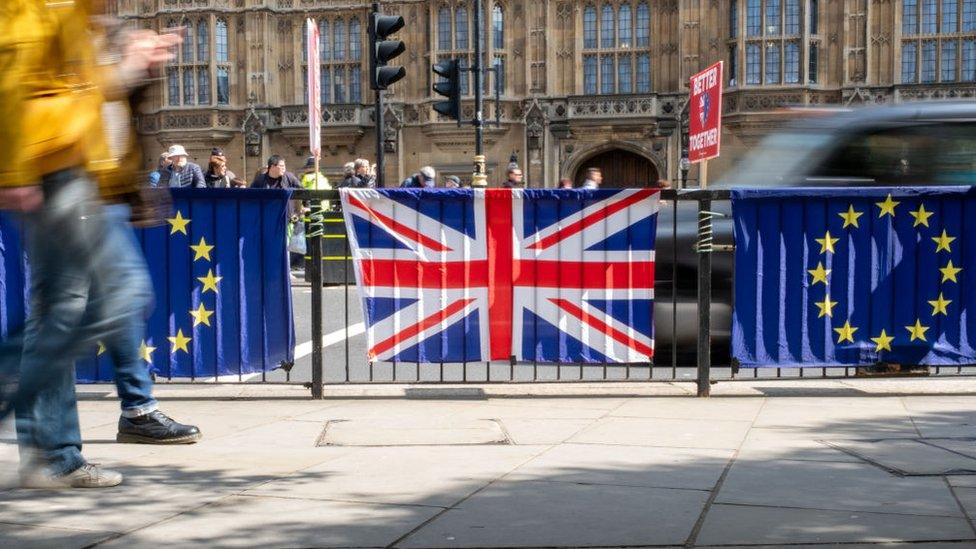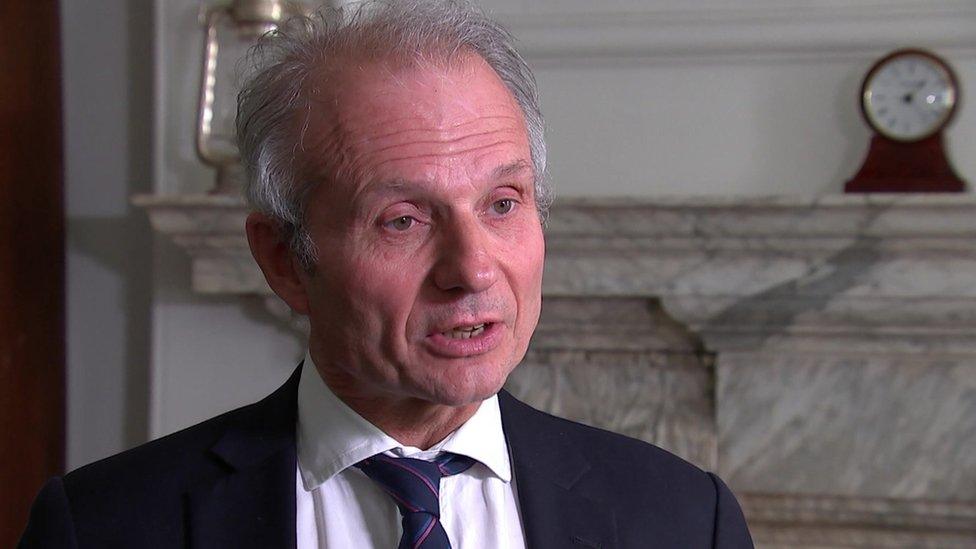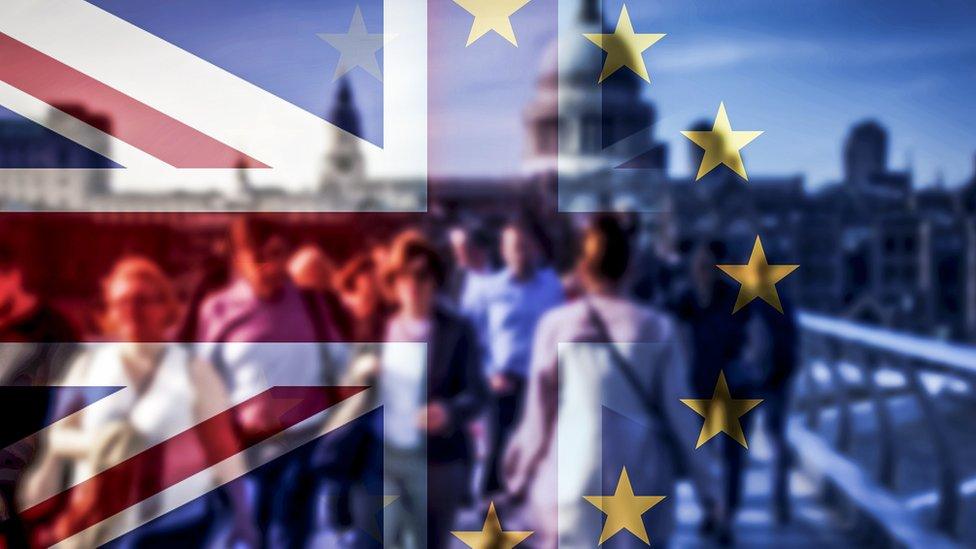Hands up who wants to vote for the European Parliament?
- Published

The possibility the UK may remain in the EU for only a short time after the elections makes no difference
Bowing to the inevitable
It was the Government's acknowledgement earlier this month that Parliament would not have agreed the withdrawal deal before this Thursday that confirmed the inevitable. For good or ill, polling will indeed have to go ahead in order to validate the new Parliament for the EU as a whole.

A British tradition means elections in the UK are normally held on Thursdays
So, deep breath, here's how it works...
Even though there is nothing sacrosanct about Thursdays being polling days, this is just one of many British traditions which mark us out from everywhere else in Europe except the Netherlands. Sunday is polling day in the rest of the EU.
That's why we go into a strange kind of suspended animation.
After votes have been cast on the Thursday they will be held, securely we hope, until counting begins on Sunday 26 May.
But no results will be declared until 22:00 BST, after polls close around the rest of the EU.

The PM's de facto deputy David Lidington says the UK will have to fight these European elections
Unlike our own parliamentary elections in which each constituency elects one MP, the West Midlands is one single giant constituency with no fewer than seven MEPs, each of whom represents every area in the region comprising Herefordshire, Shropshire, Staffordshire, Worcestershire, Warwickshire and the West Midlands metropolitan area.
Each party compiles a "closed list" of candidates named in a ranking order from one to seven. When nominations closed two weeks ago, the following candidates had been nominated:
BREXIT PARTY
Rupert Lowe
Martin Daubney
Andrew England Kerr
Vishal Khatri
Nikki Page
Laura Kevehazi
Katherine Harborne
CHANGE UK
Stephen Dorrell
Charlotte Gath
Pete Wilding
Amrik Kandola
Joanna McKenna
Victor Odusanya
Lucinda Empson
CONSERVATIVE
Anthea McIntyre
Daniel Dalton
Suzanne Webb
Meiron Jenkins
Alex Phillips
Mary Noone
Ahmed Ejaz
GREEN
Ellie Chowns
Diana Toynbee
Paul Whitehead
Julian Dean
Louis Stephen
Helen Heathfield
Kefentse Dennis
LABOUR
Neena Gill
Sion Simon
Julia Buckley
Ansar Khan
Zarah Sultana
Sam Hennessey
Liz Clements
LIBERAL DEMOCRATS
Phil Bennion
Ade Adeyemo
Jeannie Falconer
Jenny Wilkinson
Jennifer Gray
Beverley Nielsen
Lee Dargue
UKIP
Ernie Warrender
Paul Williams
Graham Eardley
Paul Allen
Nigel Ely
Joe Smyth
Derek Bennett
The ballot paper will list each of the candidates under their respective parties' names.
Each elector should vote only once, with an X indicating the party list of their choice.
So what d'heck is d'Hondt?

Two new parties, the Brexit Party and Change UK, will contest these elections
If you don't know now you soon will. For a start, it's 'who' rather than 'what'.
Viktor d'Hondt was a Belgian lawyer and mathematician who died 118 years ago, little knowing he had invented the arithmetical formula by which MEPs are elected.
Purists debate whether or not it's true "proportional representation" at all.
But it's the system we have, so here's how it works.
In the first round of counting, the party with the most votes wins a seat for the candidate at the top of its list.
In the second round of counting, the winning party's vote is divided by two, and whichever party comes out on top in the reordered results wins a seat for its top candidate.
The process repeats itself, with the original vote of the winning party in each round being divided by one plus their running total of MEPs, until all seven seats have been taken.
Is that perfectly clear?
No?
It's as brief as I can make it: Albert Einstein famously remarked: "Everything should be made as simple as possible, but no simpler than that."
- Published7 May 2019

